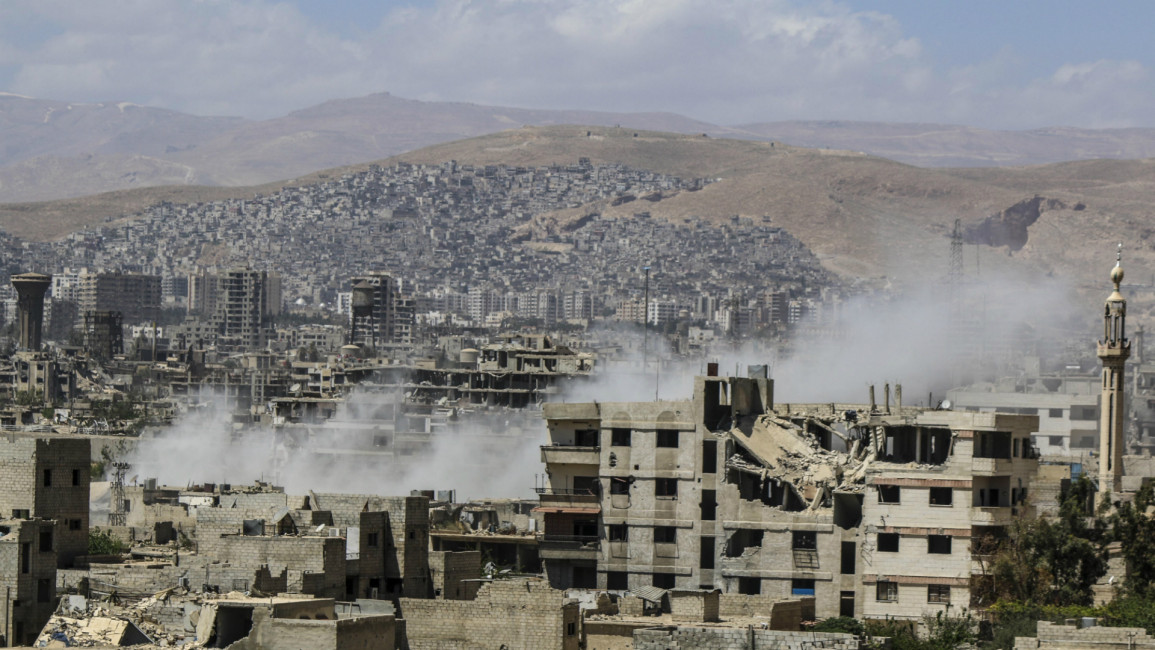
Airwars: Monitoring the civilian casualties of the anti-IS war
Northern Iraq has long known the tonic of aerial bombardment. During the British imperial crackdown on the Iraqi Revolt of 1920, Squadron chief Arthur "Bomber" Harris wrote of the bombers’ power.
In forty-five minutes, he wrote in 1924, "a full-size village can be practically wiped out and a third of its inhabitants killed or injured". The warriors on the ground, he noted, have "no opportunity for glory, no effective means of escape". They would be erased just like their civilian companions.
Chief Staff Officer Lionel Charlton visited an Iraqi hospital, which held the bodies of victims of a British bombing raid. In his memoirs, Charlton wrote that the "indiscriminate bombing of a populace with the liability of killing women and children, was the nearest thing to wanton slaughter".
These were harsh words. Charlton was recalled to Britain. He was banned from Iraq.
No such self-awareness exists in the Western militaries today as they continue to bomb towns that they had bombed almost a century ago. Heavy bombardment by Western aircraft of the Islamic State (IS) positions in northern Iraq and Syria continue.
These come alongside equally vigorous bombing of Kurdish positions by Turkish jets. Western forces admit that during the past seven months their bombs have likely killed two non-combatants.
This is a remarkable ratio. It is unprecedented. It suggests that the West is now master of precision bombing – able to strike with overwhelming force and not hit civilians.
An inconvenient truth
A new report from Airwars – Cause for Concern (August 2015) – suggests that the Western position is untenable. A group of researchers based in the United Kingdom and Iraq have looked carefully at airstrikes since August 2014.
They found that in one hundred and eighteen incidents, the Western forces more likely killed between 459 and 1086 civilians.
Airwars admits that some of the incidents "are poorly reported" and that given the difficulty of going to the ISIS controlled areas, hard to verify.
Nonetheless, Cause for Concern raises several important issues of accountability – merely because these are difficult to confirm does not give the West carte blanche to continue this kind of bombardment, nor does it give the West immunity from the consequences of the laws of war.
Nothing is easy in the fog of war. Each side claims the moral high ground. IS portrays its fighters as innocent civilians, while the West frames every dead body – even a child – as a terrorist. It is not easy to penetrate the fog and produce a better story.
Chris Woods, a veteran journalist with the BBC and with the Bureau of Investigative Journalists, led a handful of colleagues to form Airwars. Earlier this year, Woods published Sudden Justice: America’s Secret Drone Wars (Oxford University Press) – a searing indictment of extra-judicial assassinations.
| Nothing is easy in the fog of war. Each side claims the moral high ground. IS portrays its fighters as innocent civilians, while the West frames every dead body – even a child – as a terrorist. |
Woods and his colleagues watched with dismay the civilian deaths in the Western bombings from Afghanistan to Libya. "A narrative has been growing around these wars that they are somehow risk-free," Woods told me. "I’ve been covering wars for many years and I am always wary of such claims."
Wariness is a good quality in a journalist. Woods says that his team is "led by our findings, and not by our expectations".
Research is confounded by the danger of the war zone. Airwars relies on local monitoring groups, journalists and ordinary people to tell their stories and build the Airwars archive.
It is not an easy task. But it is suggestive. Woods, with Latif Habib, in Baghdad, and Kinda Haddad, in London, look at each incident that is of note.
A few days before the end of 2014, Western aircraft bombed an IS-held al-Saraya building in al-Bab (Aleppo, Syria). The building was widely reported to have been a holding facility for locals.
A few days after the strike, Huda al-Ali of the Syrian Network for Human Rights said, "the missile was very powerful and destroyed the building completely".
Fifty-eight civilians were killed. The US, which conducted the raid, did not register that it had hit al-Bab. It then denied that civilians died there. It is one of the incidents investigated by Airwars, who found that the US had been parsimonious with the truth.
Modern military strategy and the pursuit of terror
Last year, the UN Special Rapporteur on extrajudicial executions, Christof Heyns, said that drones had made killing "depersonalised". This kind of weaponry makes it hard for the military to use only the minimum force required to subdue an enemy.
But Heyns is wrong in his focus. It is not the technology, but the military strategy, that leads to the use of overwhelming force.
| "A narrative has been growing around these wars that they are somehow risk-free" - Chris Woods |
Modern warfare is premised on overpowering destruction – terrible violence such as in World War Two. When the United States dropped an atom bomb on Hiroshima, President Harry Truman called the city a "military base".
It had been targeted, he said, "to avoid, as much as possible, the killing of civilians". More than a hundred thousand civilians died in that attack – and many millions more suffered from its effects.
General Curtis LeMay honestly said, "we knew we were going to kill a lot of women and kids when we burned that town. Had to be done".
The atom bomb attack had the desired result. It terrified the Japanese. Modern military strategy is designed to inflict terror.
Moral supremacy and the question of accountability
"Relatively speaking," Woods notes, "airstrikes can be more precise than even a decade ago – depending on which weapon systems are used". But the idea of precision is itself questionable. The West claims to be precise in its bombing merely to affirm its sense of moral superiority.
Unlike IS, it claims not to target civilians. When civilians are killed, it is an accident. NATO took this attitude in Libya – and so refused to submit to any investigation of its bombing there in 2011.
Woods argues that the failure to acknowledge civilian casualties "simply hands Daesh [IS] an easy propaganda weapon".
But the point is that the West cannot win here. Both admission and denial of killing civilians will provide IS with fodder. Perhaps the time has come to reconsider the strategy of aerial bombardment, which - precise or not - does not seem to be effective in ending insurgencies.
Kurdish militias, who have been effective on the ground against IS, now face Turkish bombing. There is little doubt that Ankara has received a green light from the West.
As part of the deal that allows Turkey to bomb the Kurds, lethal drones of the US military take off from Turkish airfields to bomb northern Syria. They will have the desired impact – sowing terror amongst ordinary people. This is hardly the war against terror. It is merely another terrible war.
Vijay Prashad is a columnist at Frontline and a Senior Research Fellow at AUB's Issam Fares Institute of Public Policy and International Affairs. His latest book is The Poorer Nations: A Possible History of the Global South (Verso, 2014 paperback).
Opinions expressed in this article remain those of the author and do not necessarily represent those of al-Araby al-Jadeed, its editorial board or staff.




